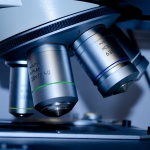
News • Colon cancer
Biomarkers identify aggressive Tumors
Early-stage colon cancer patients could benefit in the future from specific genetic tests that forecast their prognosis and help them make the right decision regarding chemotherapy.

Early-stage colon cancer patients could benefit in the future from specific genetic tests that forecast their prognosis and help them make the right decision regarding chemotherapy.
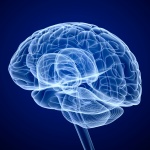
People who survive a stroke or a mini-stroke without early complications have an increased risk of death, another stroke or heart attack (myocardial infarction) for at least 5 years following the initial stroke, found a new study published in the Canadian Medical Association Journal.
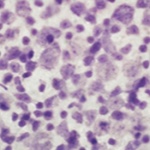
Although dementia is most often seen in adults, childhood or adolescent dementia does occur. A team of researchers from the University of Würzburg believes that established therapeutic drugs might be effective against childhood dementia.

Experts say that one-third of the world’s dementia cases could be prevented by managing lifestyle factors such as hearing loss, hypertension and depression.
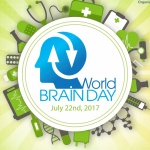
The fourth World Brain Day (July 22) revolves around stroke – how to detect it, how to prevent it, how to treat it. Raad Shakir, president of the World Federation of Neurology (WFN), seizes the opportunity to raise awareness about a disease that is becoming more common globally – but also preventable to a large extent.
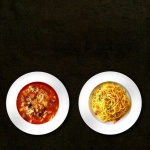
Many children with autism spectrum disorder experience significant gastrointestinal issues, but the cause of these symptoms is unknown. Professionals in the medical community have suggested a potential link between diet and gastrointestinal issues related to autism. Now, researchers from the University of Missouri School of Medicine have found that diet is not a contributing factor in these…
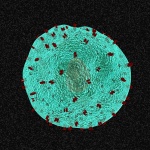
An international research team led by Université de Montréal medical professor Christopher Rudd, director of research in immunology and cell therapy at Maisonneuve-Rosemont Hospital Research Centre, has identified a key new mechanism that regulates the ability of T-cells of the immune system to react against foreign antigens and cancer.

The Alzheimer's Association announced the launch of a $20 million U.S. two-year clinical trial to test the ability of a multi-dimensional lifestyle intervention to prevent cognitive decline and dementia in 2,500 older adults with no current cognitive symptoms but who are at increased risk for later cognitive decline. The announcement was made at the 2017 Alzheimer's Association International…

The EASY PULSE® is an unbelievably small and light mechanical chest compression device. Performing manual chest compressions well for an extended period of time is almost impossible. Not only is it physically demanding, but other actions, such as vital signs monitoring, are also required simultaneously. SCHILLER’s EASY PULSE® is the solution for more efficient resuscitation: this portable,…

The U.S. Food and Drug Administration has cleared the expanded use of a cooling cap, DigniCap Cooling System, to reduce hair loss (alopecia) during chemotherapy. This is the first cooling cap cleared by the agency for use in cancer patients with solid tumors.

Surgeons at Johns Hopkins Medicine report that their first series of a minimally invasive procedure to treat chronic pancreas disease, known as severe pancreatitis, resulted in shorter hospital stays, less need for opioids and fewer complications, compared with standard surgical approaches.

The ADVIA Centaur® High-Sensitivity Troponin I (TNIH) assay* is the latest addition to Siemens Healthineers’ comprehensive cardiac menu to assist clinicians with the diagnosis and treatment of chest pain patients. Designed to aid in diagnosing acute myocardial infarctions (AMI) through the quantitative measurement of cardiac troponin I in serum or plasma, high-sensitivity troponin plays a…

Canadian researchers have invented an intraoperative probe that reliably detects multiple types of tumour cells.

IBA (Ion Beam Applications S.A.), the world’s leading provider of proton therapy solutions and radiation therapy integrated quality assurance (QA) for the treatment of cancer, announces the release of myQA version 2017-001. This new version further enhances the integration of quality assurance across all QA applications, departments and people.

Led by six globally-recognised experts in cancer care, the organisation known as CHILL, Cancer-related Hair Loss, International Leadership and Linkage, announced today an initiative to collect and track evidence-based patient information and clinical guidance. Data will be used to establish clinical best practices to ensure maximum effectiveness of scalp cooling to minimise chemotherapy-induced…

In a study involving simulated out-of-hospital cardiac arrests, drones carrying an automated external defibrillator arrived in less time than emergency medical services, with a reduction in response time of about 16 minutes, according to a study published by JAMA.

A study examining the impact of antibiotics prescribed for nearly 1500 adult patients admitted to The Johns Hopkins Hospital found that adverse side effects occurred in a fifth of them, and that nearly a fifth of those side effects occurred in patients who didn’t need antibiotics in the first place.

Just ten minutes of mindfulness meditation could be used as an alternative to painkillers, according to research by Leeds Beckett University.

Lightweight, sturdy and simple to operate – the Oxylog VE300 is Dräger’s newly developed emergency and transport ventilator that is particularly apt for use outside of the hospital environment. Emergency doctors and paramedics can provide patients with the most important ventilation modes and, if necessary, use the device for CPR.

Cardiac surgeons are successfully performing more extensive surgical repairs of type A aortic dissection—one of the highest risk operations in cardiothoracic surgery. These new surgical techniques, along with improved postoperative care, are resulting in better long-term outcomes and lower rates of complications.
Clinicians and researchers in Southampton are leading a pioneering study into the use of computer-generated hand models to help improve the success of joint surgery for patients with arthritis.

In a new study presented at the 2017 American Thoracic Society International Conference, adult asthma patients treated with bronchial thermoplasty (BT) had fewer severe exacerbations and were able to reduce their ER visits and hospitalizations in the two years following treatment.

Richard Wolf GmbH raises image quality in endoscopy to a new level with pin-sharp 4K resolution technology. The optimally tailored system components ensure image reproduction that matches the natural state of the image, at the same time operates energy efficient, and is ergonomic and compact.

STARLED3 NX is a lamp manufactured by ACEM based on the Next generation LED technology, assuring cold light, long life and low energy consumption. The lamp is suitable for countless applications both for surgery and operating room. It is ideal for diagnosis, dental sector, gynecology, dermatology, general medicine and surgery.

NDS announced that it has received FDA 510(k) clearance for its new ZeroWire Mobile battery-powered display stand solution.